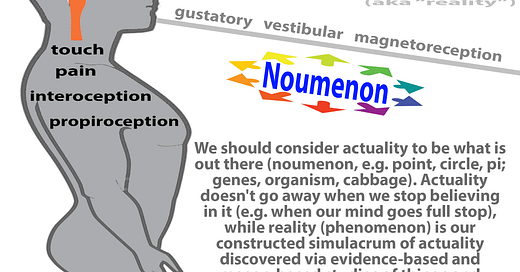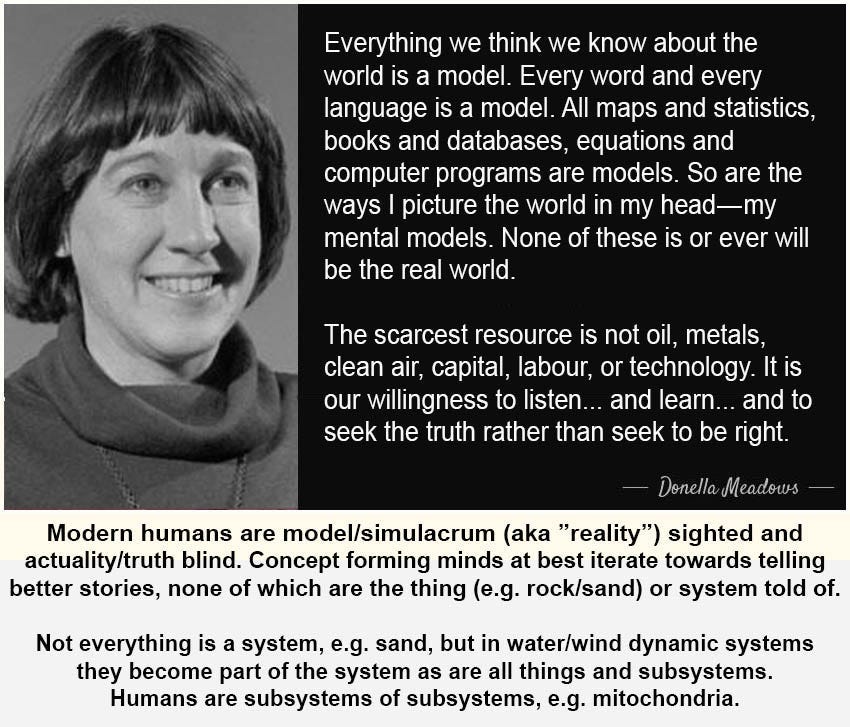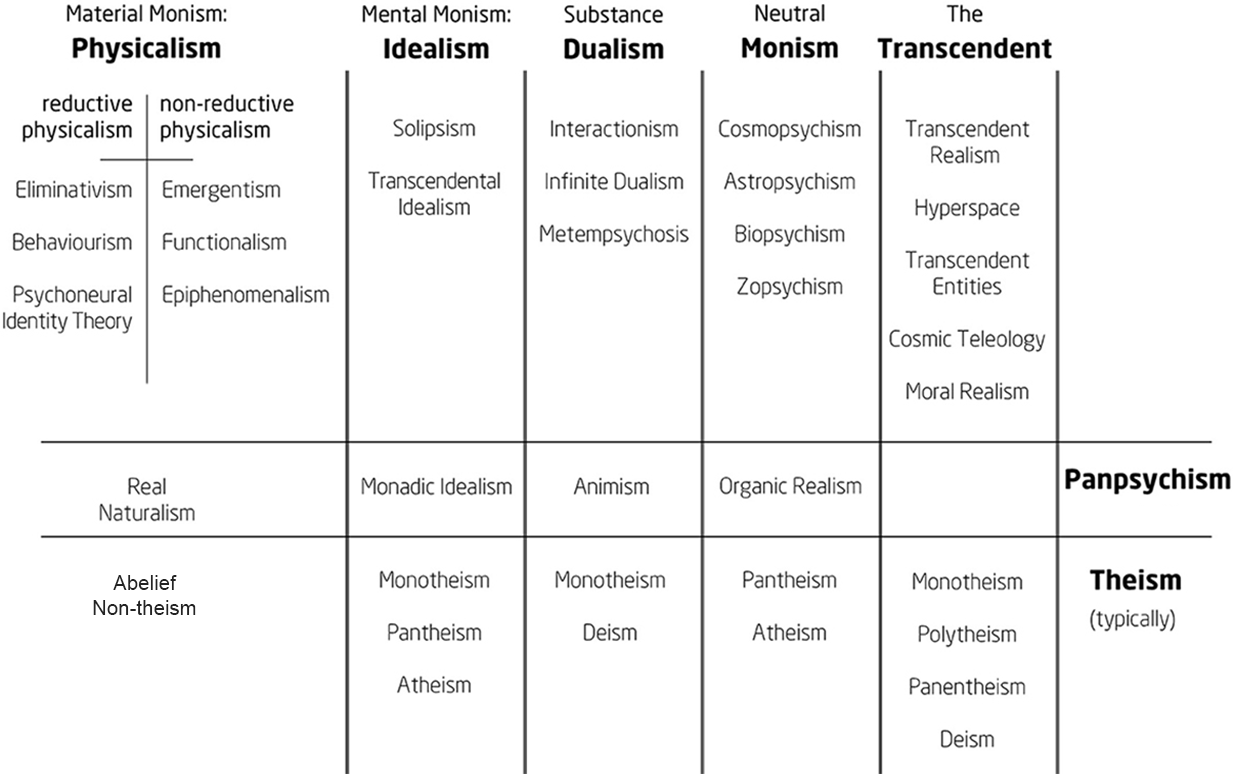Some time ago I settled upon:
We should consider actuality to be what is there — what you could stub your toe on, detected or not, while reality is our constructed simulacrum of actuality discovered via scientific studies that seems important to us (using, e.g., the ‘real numbers’ and the findings of scientific studies).STAN 6/6/24
If I may channel Stanley Salthe in word choice (above was Stan’s last post to one listserv — he died in 2024 at age 94):
In all usages, replace ‘conscious’ with ‘simulacrum’, e.g. ‘simulacrumness’ or ‘pansimulacrumnessism’.
Simulacrum
noun
an image or representation [a model] of someone or something [or system].
an unsatisfactory imitation or substitute.
Our ability, however limited, to create simulacrum, may be viewed as our 11th sense. Point, circle, pi are out there in that they can be perceived by any simulacrum creating species that may arise on any planet dependent on orbiting any star for energy in any of some 2 trillion galaxies in the observable and unobservable universe. Call it memesion or what you will.
The value of pi is going to be the same no matter who the memesionist is or their form (advanced slim mold or forest mycorrhizae…). In base 2, using whatever symbol for 0 and 1, the same number will be perceived: π=11.0010010000111111011010101000100010000101101000110000100011010011000100110001100110001010001011100000 . . .. [In the first 104 digits, 42 ones and 60 zeros. Not random? Does God love zeros more? In the first 3,222 digits, 1610 ones and 1612 zeros. Maybe, but not much more.] Pi is not a constructed simulacrum.
The word simulacrum is wholly unsatisfactory to concept mongering minds that mis-take their simulacrum of the world system for actuality, who come, must come to insist that only simulacrumness is real, i.e. is reality [cue Plato], the one reality that all solipsistic minds traffic in?
“Solipsistic” describes something relating to or characterized by solipsism, which is the philosophical idea that only one’s own mind is sure to exist. It can also be used to describe someone who is overly concerned with their own desires and needs, neglecting the needs of others.
For pansimulacrumnessists, only their own minds and those of other simulacrumnessist modern humans exist. Academia (when not writing books/papers/articles) is their natural habitat. Any worldview that is human centric is overly concerned with modern human desires, needs, rights — with maximizing the empower of metastatic modernity, while neglecting the needs… existence of 8.7 million species of Eukarya and the trillion or so species of Archaea/Bacteria others as externalities, i.e. modern humans are blind to Nature’s mandate to maximize the empower of the Gaian system all are subsystems of by living within limits as a K-selected species.
Simularumnessism (belief in simulacrumness) defines modern humans and their belief in belief pathology.
The concept of ‘consciousness’, if it has any redeeming value, is as a pre-cognitive intuition of ‘system’ and ‘systemness’. Donella was asked if there was anything that was not a system, and “Yes — a conglomeration without any particular interconnections or function. Sand scattered on a road by happenstance is not, itself, a system. You can add sand or take away sand and you still have just sand on the road. Arbitrarily add or take away football players, or pieces of your digestive system, and you quickly no longer have the same system.” Reductionism works just fine for non-system things, and holism works, sort of insofar as human can model complexity, for systems. Stan Salthe saw dissipative (but non-evolvable) systems as selecting for outcomes that a reductionist analysis misses, which can also influence evolved outcomes. It’s the whole shebang, stupid.
Perspectives on Natural Philosophy, Stanley N. Salthe, 2018, his last published paper.







